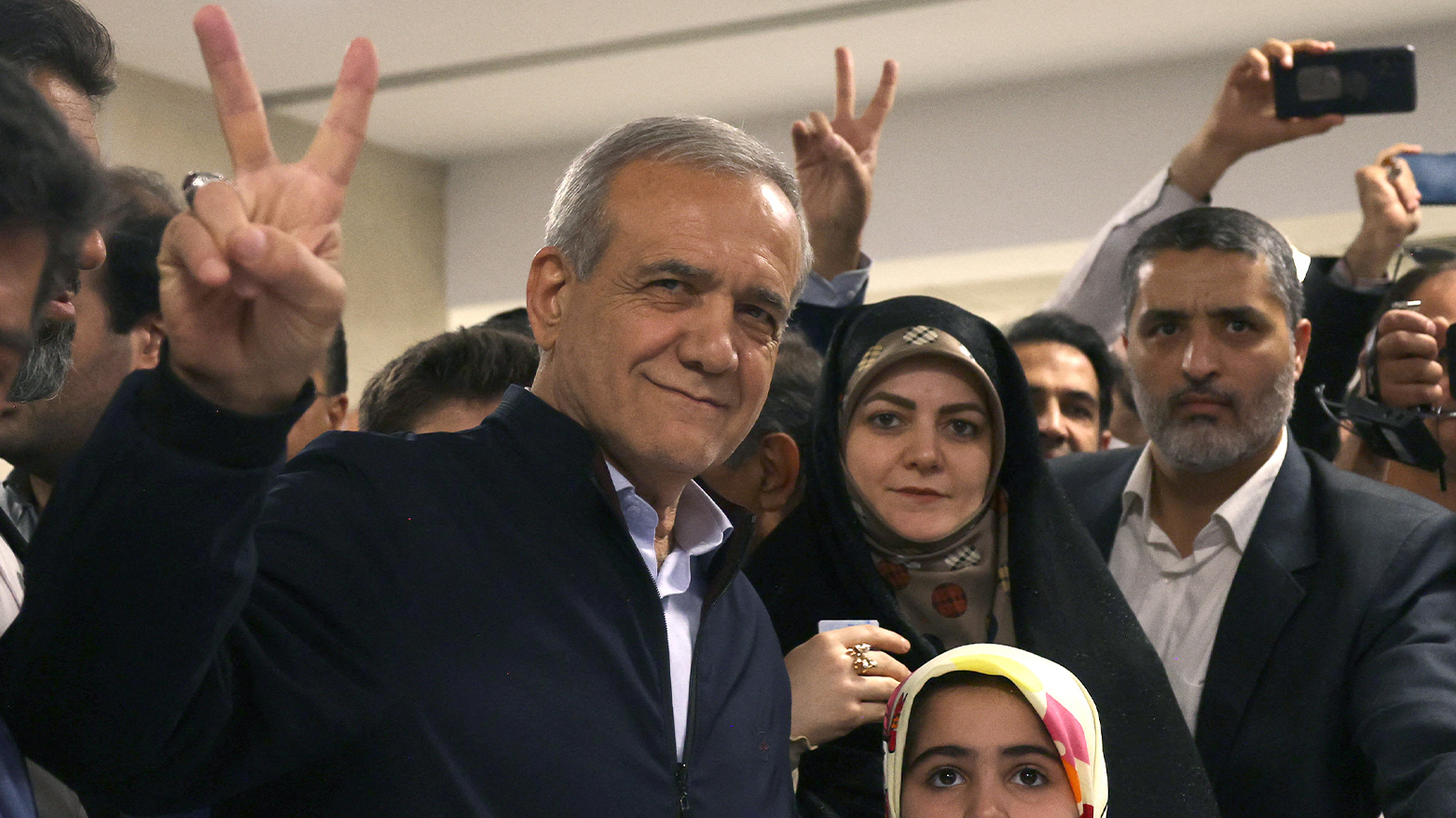Masoud Pezeshkian wins 14th presidential election in Iran
The participation rate in the second stage was approximately 49%, out of an eligible 61,452,321 voters. This is an increase from the first round’s historic low participation rate of 40%, yet still lower than most previous presidential cycles except for the 2021 election.

ERBIL (Kurdistan 24) – Masoud Pezeshkian has been announced as the winner of the 14th term of the presidential election in Iran, securing more than 53% of the total votes cast in the second phase.
The Iranian Ministry of Interior reported that 30,530,157 people participated in the second round, with Pezeshkian receiving 16,384,403 votes.
Saeed Jalili, Pezeshkian’s opponent in the second phase, garnered 13,538,179 votes, equating to over 44% of the votes. There were also 607,575 invalid votes recorded in this stage.
The election results must be confirmed by the Guardian Council, after which Pezeshkian will become the ninth president of Iran.
The participation rate in the second stage was approximately 49%, out of an eligible 61,452,321 voters. This is an increase from the first round’s historic low participation rate of 40%, yet still lower than most previous presidential cycles except for the 2021 election.
Early results were announced at 2:30 AM, with Pezeshkian maintaining a lead over Jalili that grew to over 2.8 million votes.
Prominent figures from Pezeshkian's campaign, such as former foreign minister Mohammad Javad Zarif, expressed gratitude to the voters. Zarif wrote on social media, "We are indebted to the people." Mohammad Javad Azari Jahromi, former Minister of Communications, also praised Pezeshkian’s integrity and commitment to justice.
Reactions from supporters of conservative candidates varied. Some, like Mohsen Mansouri, head of Jalili’s electoral headquarters, acknowledged the defeat, while others pointed to internal disagreements as the cause of their loss. Reza Panahian criticized the lack of unity among conservative factions.
Pezeshkian, born in 1954 in Mahabad, is a heart surgery specialist and a long-time representative of Tabriz in Iran’s parliament. His political career includes serving as the First vice Speaker of Parliament and Minister of Health.
Jalili, born in 1965 in Mashhad, has held various significant positions, including Secretary of the Supreme National Security Council and head of Iran's Nuclear Negotiating Group.
This election was seen as a critical moment for Iran's political factions, especially amid ongoing internal and external challenges.
The conservatives, who have held unified power since 2021, faced a tougher than expected electoral path, complicated by economic and political crises and internal corruption scandals.